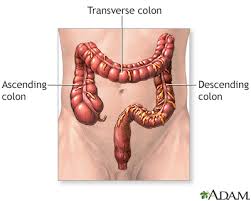
Large Bowel Surgery
Large bowel surgery involves the removal or repair of a section of the colon or rectum to treat conditions such as cancer, diverticulitis, or inflammatory bowel disease.
Large Bowel Surgery
This procedure helps restore normal bowel function, alleviate symptoms, and prevent serious complications


What is Large Bowel Surgery?
Large bowel surgery, also known as colon or colorectal surgery, involves the removal, repair, or resection of parts of the colon or rectum to treat various medical conditions. These conditions may include colorectal cancer, diverticulitis, inflammatory bowel disease (such as Crohn's disease or ulcerative colitis), bowel obstruction, or severe gastrointestinal bleeding.
1. Colectomy
Recovery time varies based on the extent of surgery and whether it was open or minimally invasive. Hospital stay typically lasts a few days to a week. Patients may need to follow a modified diet and avoid heavy lifting during recovery.
Types of Large Bowel Surgery:
The removal of part or all of the colon.
Can be partial (only a segment of the colon is removed) or total (entire colon is removed).
2. Proctocolectomy
Removal of both the colon and rectum, often performed in cases of severe inflammatory bowel disease or cancer.
3. Colostomy or Ileostomy Creation
In cases where the bowel cannot be reconnected, an opening (stoma) is created in the abdomen to divert waste into a colostomy or ileostomy bag.
4. Polypectomy
Removal of polyps during a colonoscopy, often used for early-stage issues.
5. Minimally Invasive Surgery
Includes laparoscopic or robotic-assisted techniques for smaller incisions, quicker recovery, and reduced post-operative pain.
Recovery Process:
Conclusion:
Large bowel surgery is a critical procedure for addressing serious digestive health issues. While it requires careful post-operative care and lifestyle adjustments, it can significantly improve health outcomes and quality of life. A consultation with a colorectal surgeon is essential to determine the most appropriate treatment approach.
Istanbul Bariatric
Transform your life with our expert services.
Contacts
© 2024. All rights reserved.
